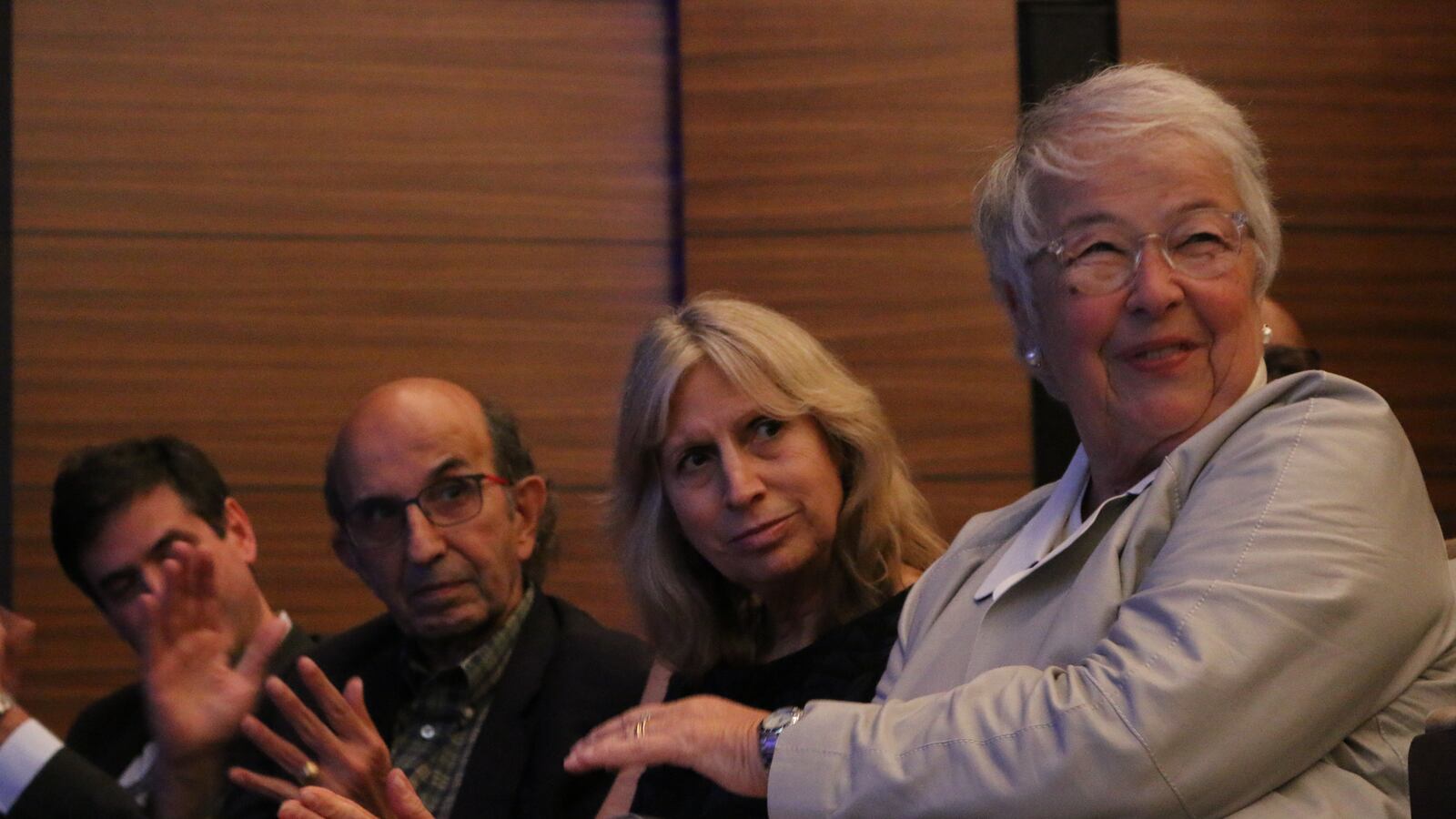A high-profile principal training program that started with a bang under Mayor Michael Bloomberg has gone out with a whimper.
The Aspiring Principals Program, a cornerstone of former Chancellor Joel Klein’s approach to the school system, graduated its final class in June and will no longer train new school leaders in New York City.
Since 2003, the fast-track principal training program has been run under the auspices of the NYC Leadership Academy, a nonprofit organization initially launched as an alternative to the city’s traditional process, in which educators work their way up through the system over time.
But the Aspiring Principals Program was also a mechanism for Klein to carry out his reform agenda by training would-be principals like CEOs (former GE executive Jack Welch once chaired the Academy) and holding them accountable for boosting school performance.
Early on, the program trained close to 90 aspiring principals per year, often younger teachers looking to vault into leadership positions, Academy officials said. It originally included an intensive summer training followed by a paid year-long residency shadowing an experienced principal, and over 14 years, the program produced 466 city principals.
The decision to end the principal training program comes alongside a shakeup to another longstanding relationship with a non-profit organization. Chalkbeat reported earlier this month that the city will not renew its contract with TNTP, a reform-oriented organization that helped recruit and train roughly 20 percent of the city’s teachers — opting instead to run the program itself.
City officials said they ended the principal training program for the same reason they brought the teacher training program in-house.
“It was just a smart move on the [education department’s] part to take what we’ve learned from our partners and make sure that we internalize it ourselves,” said Deputy Chancellor Phil Weinberg.
Asked whether ending the principal training program amounted to a rejection of the business-style leadership Klein espoused, Weinberg indicated that the education department had shifted its thinking. “It takes specific things to run GE, but it’s a different thing than running a school,” he said.
Still, the decision to end the program is not likely to have a sudden effect on principal recruitment and training. The education department had been scaling back the program for years, and in June, just 13 people graduated from it. (By contrast, the city hired 137 principals last school year.)
One of the ways the city reduced the program’s scope was by no longer sending prospective principals to spend a year embedded in another school — an expensive commitment given that the city had historically paid participants a full principal’s salary while training.
“As Carmen Fariña came on board, she wanted to build the district’s capacity to run their own leadership programs,” said Irma Zardoya, president and CEO of the NYC Leadership Academy, which now works with districts in more than two dozen states across the country. “They received significant funding to build capacity through their own leadership development programs. It’s happened gradually.”
The city has been leaning more heavily on its Leadership in Education Apprenticeship Program, which was developed with the NYC Leadership Academy and includes a summer training that borrows heavily from the Aspiring Principals curriculum.
But a key difference is that participants keep their jobs in their original schools while learning from their current principals, eliminating the cost of paying them to train elsewhere. In 2017, LEAP produced 86 graduates, many of whom will likely be hired as assistant principals first.
City officials emphasized that they will not completely cut ties with the NYC Leadership Academy, and the organization will continue to provide support to existing principals who request it. The education department has also continued to invest in a suite of other training programs, including partnerships with local universities, funded partly by the Wallace Foundation, which also helped finance the initial Aspiring Principals program.
The Aspiring Principals program has evolved and sparked controversy throughout its 14-year run. Some school communities pushed back against what they saw as heavy-handed management tactics, and others questioned how people with little teaching experience could quickly morph into effective school leaders. (Current Chancellor Fariña significantly increased the amount of teaching experience principals must have before landing the job.)
A 2009 study of the program’s effect in New York City found that it had some positive effects on student test scores, but a different analysis showed that schools run with Leadership Academy graduates had higher teacher turnover and lower grades on progress reports. The program also motivated a high-profile spat between education reform critic Diane Ravitch and former Chancellor Klein, who passed over Ravitch’s partner to run the principal training program. (After this story was published, Ravitch wrote in an email that she never asked Klein to hire her partner to run the program, and their disagreements were unrelated.)
Eric Nadelstern, a deputy chancellor under Klein who later ran a principal training program at Teachers College, said the program’s conclusion marks the end of an era. While Bloomberg and Klein wanted to shake up the system, he said, Fariña has sought to restore veteran educators to the role.
“Carmen thinks very differently,” he said. “She thinks people need to put in their dues.”
This story has been updated to include a response from Diane Ravitch.

